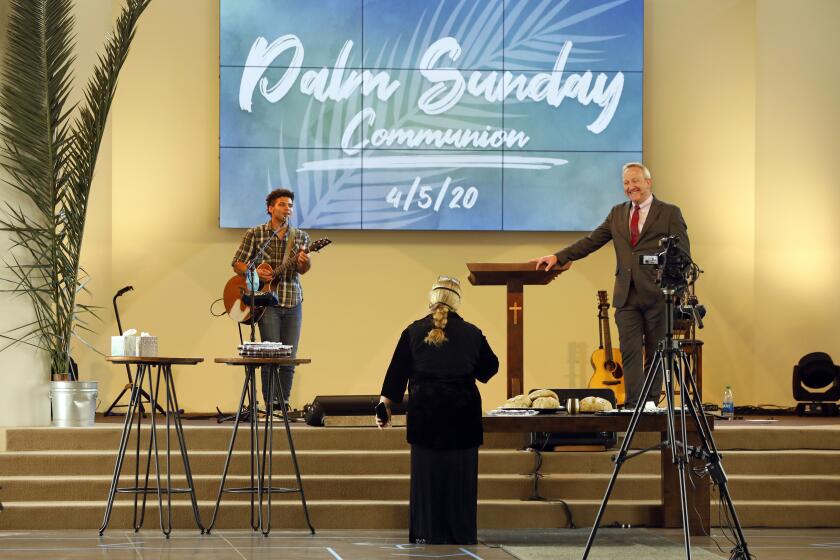
The aging draft resister came early to beat the Memorial Day observance at Los Angeles National Cemetery. He angled through rows of white headstones, treading on immaculately tended grass. He stopped at the grave of the judge who had sentenced him.
He had a message for U.S. District Judge Harry Pregerson that has been in his thoughts since that day in 1970.
As a 22-year-old in 1967, Bob Zaugh had found a purpose in his life more important than school, career or even freedom. It was a recognition of the commonality of all humans that meant he could not support the Vietnam War or the system that sent young men to fight in it.
So on Dec. 4, 1967, the second national draft card turn-in day, he joined other resisters at First Unitarian Church of Los Angeles on West 8th Street in symbolically dropping their cards in a goblet.
At the height of the nation’s struggle of conscience over the Vietnam War, that decision had multiple possible consequences for a young man: ostracism by friends and family, loss of employment opportunities, and lifetime stigma as being unpatriotic or worse — a coward. Not to mention prison time.
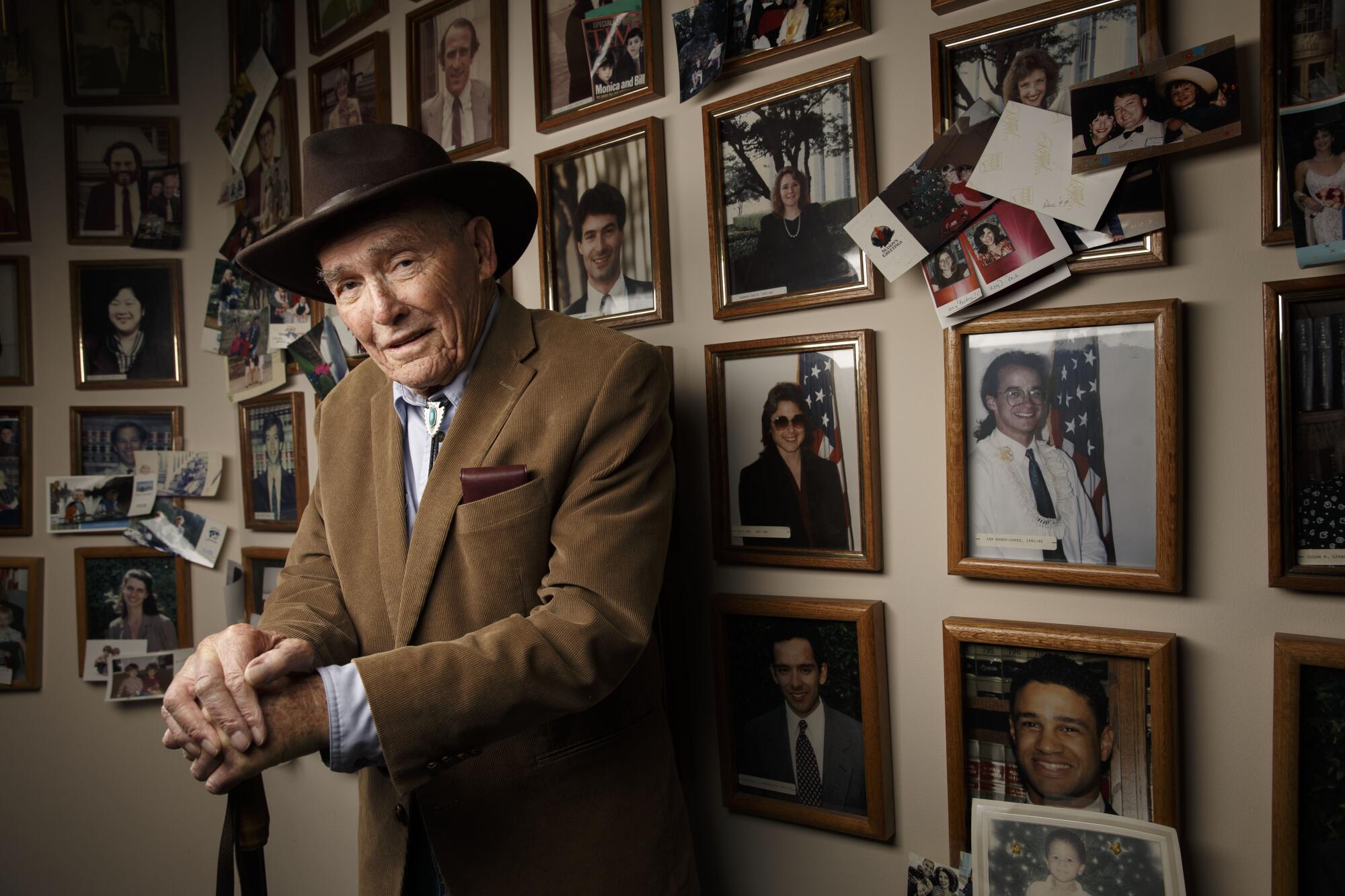
When Case 5787, United States of America vs. Robert Paul Zaugh, went on trial on Tuesday, May 26, 1970, Zaugh came prepared to admit to the two charges — refusing to report for a preinduction physical and refusing to report for induction. The maximum sentence was five years in prison and a $10,000 fine.
Pregerson, though remembered as a liberal judge, was also a Marine who was wounded in the Battle of Okinawa in World War II. He didn’t have a track record of leniency, and had already sent three of Zaugh’s roommates — Richard Profumo, Mike Swartz and Jack Whitten — to prison.
After Assistant U.S. Atty. Arnold Regardie introduced Zaugh’s Selective Service file as evidence, the judge turned to Zaugh, who had waived a jury trial and was representing himself.
“You may proceed, Mr. Zaugh.”
“I will start by saying that on May 29th I did refuse to cooperate at a physical, and that on August 27th I did refuse to submit to induction,” he began.
His defense, he said, would be “that there is really no alternative way for me to act when I am confronted by the U.S. Military Code.”
Zaugh would later obtain a transcript of the hearing from the National Archives.
In his opening statement, he quoted at length from a Selective Service System pamphlet called “Manpower Channeling,” and argued that the very concept of the draft infringed on his and other young men’s inalienable rights expressed in the Declaration of Independence and, in his view, reserved to the citizens by the 9th Amendment.
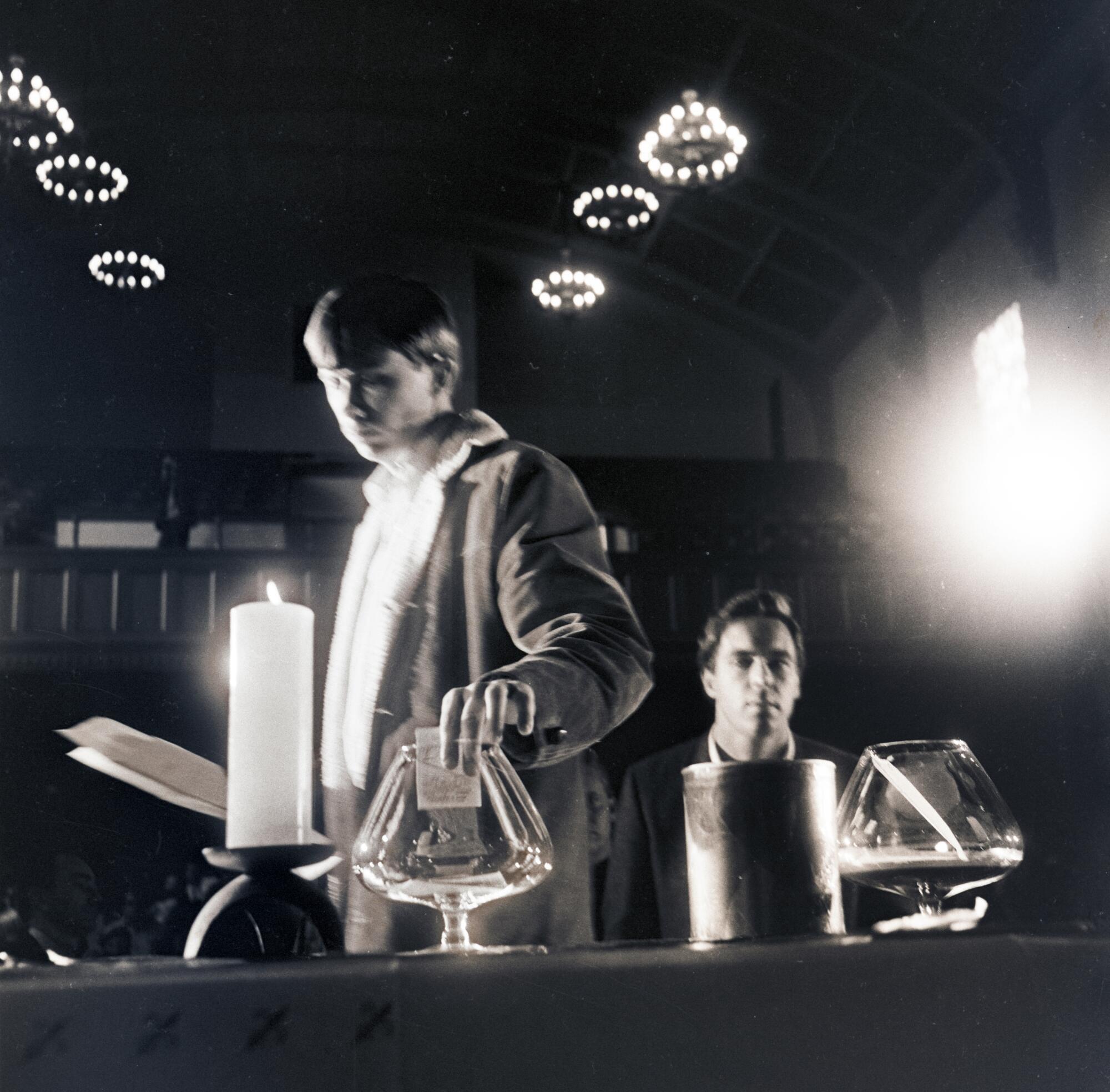
The prosecutor could no longer bear it.
“I will object to any further opening statement along these lines on the grounds that it is irrelevant and really not properly part of an opening statement,” he broke in.
And then came the moment when Pregerson inadvertently created a bond that would live beyond him — and lead Zaugh, year after year, to the judge’s grave.
“What you say is technically true, Mr. Regardie,” Pregerson told the prosecutor. “But I will hear Mr. Zaugh.”
Zaugh would — necessarily — be convicted that day and face possible prison time. But he had unexpectedly won the only victory he hoped for — to be heard.
For anyone who didn’t live through the 1960s, it might be impossible to conceive of the moral fissures wrought in America by the Vietnam War and the life-changing and character-defining decisions faced by every man of military age.
Some would follow their sense of duty, or merely do what they were told, and join a war many found they didn’t understand. Those who didn’t die returned to a home that many found didn’t understand them.
Hundreds of thousands would linger in school or marry to obtain deferments, or enlist in the Coast Guard or Air Force to avoid conscription into the Army. Others turned their backs on the U.S. by moving to Canada.
It was later estimated that more than 570,000 sought deferments through deception — the draft dodgers — or openly repudiated the draft — the resisters.
Some declared they wouldn’t fight for reasons of conscience. The standard-bearer of that group was world heavyweight champion Muhammad Ali, who in 1967 was sentenced to prison for refusing induction, citing his Muslim faith and his country’s racial injustice.
“Why should they ask me to put on a uniform and go 10,000 miles from home and drop bombs and bullets on brown people in Vietnam while so-called Negro people in Louisville are treated like dogs?” Ali asked.
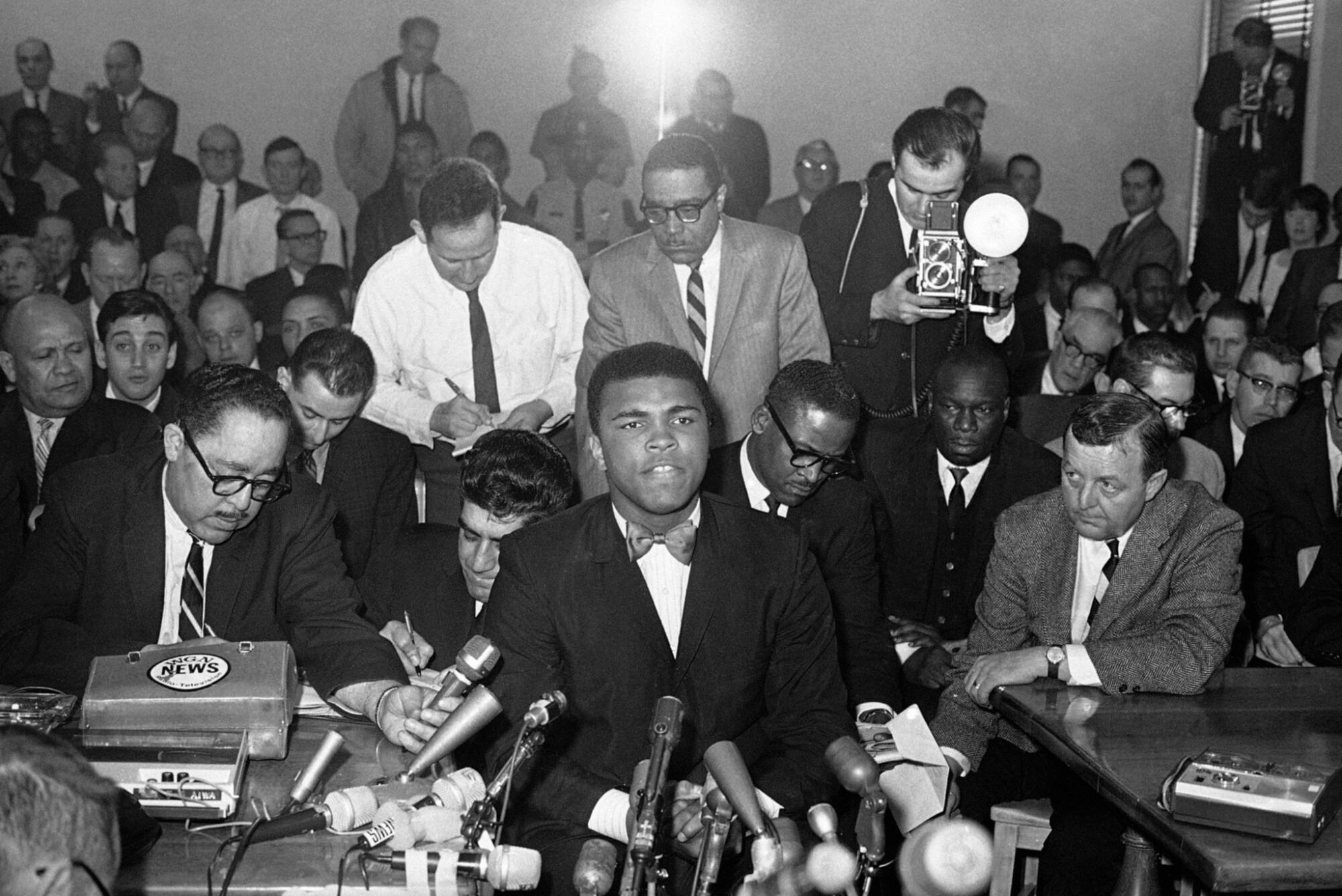
The late David Harris, former Stanford student body president and co-founder of a group called the Resistance, emerged as a leader in the growing national civil disobedience movement. He opposed the draft on broad philosophical precepts:
“We are all responsible for what our country does,” Harris wrote. “Under the worst of circumstances, we control our own behavior.”
Zaugh was in graduate school at UCLA when Harris, soon to be tried and sentenced to prison himself, spoke on campus, railing against the draft as an unjust system funneling young men into an unjust war.
The message struck so deeply that Zaugh dropped out of UCLA, joined a commune of fellow draft resisters living in a large house in central L.A., and began volunteering with a ragtag group called the Peace Press that published antiwar literature on a small offset printer.
Among resisters, Zaugh was a special case. Before he took his stand of conscience, he had reported for, and flunked, a preinduction physical due to a congenital condition called rheumatoid spondylitis, a fusing of the spinal vertebrae.
He never would have been sent to Vietnam.
When Zaugh’s day in court arrived, he wanted the judge to know that he could have taken the easy way out.
“I hope to show that, first of all, I could have cooperated, taken the physical, and I would have flunked and received either a 1-Y or a 4-F,” he said, citing two categories for medical deferment.
But that was not his defense. He brought up his physical condition for only one reason, he said: “I would like you to be convinced of the sincerity of what my defense really is.”
With Pregerson’s license to speak, Zaugh did, for 15 minutes. He read passages from “Channeling Manpower,” which he said “really had a great effect” on him — “so much so that I printed up, myself, about 10,000 copies and distributed them.”
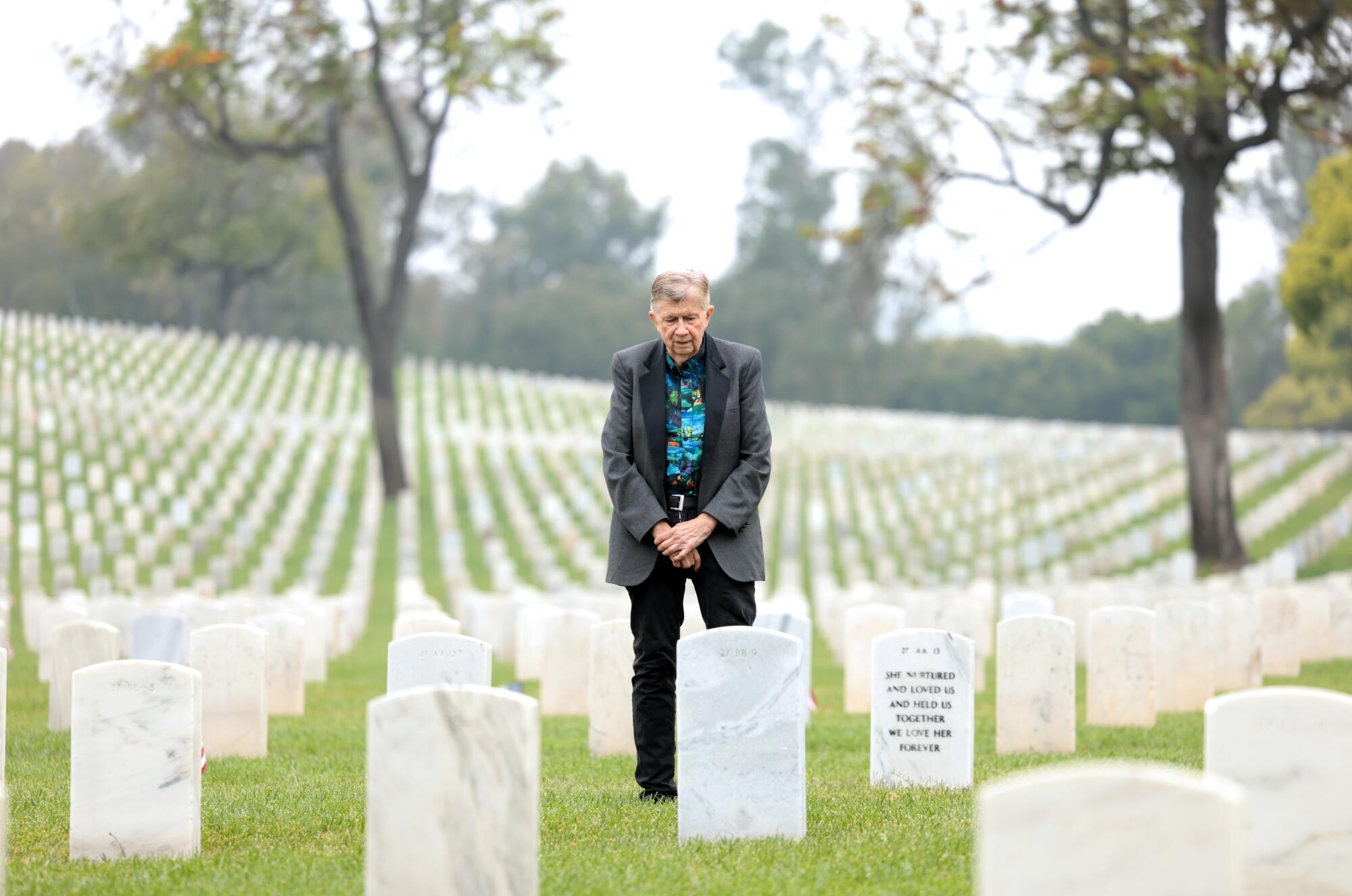
Anyone who read the document, he said, “would clearly see that the young people are dispossessed of their lives in this country, and that as a result we are being deprived of life, liberty, and the pursuit of happiness.
“I maintain that I have the right to choose my own happiness; not to have it imposed upon me from the outside.”
Pregerson cut in.
“Don’t you think all of us live under certain restrictions, Mr. Zaugh? Really, are any of us completely free to do what we want to do and to pursue our own happiness in the way we want to pursue it?”
But without waiting for an answer, he changed his tone.
“What are you doing now? Are you in school?”
“No,” Zaugh replied. “I have been working with blind children for four years, and I do printing on a subsistence wage, and I pack eggs for the father of a friend of mine who was sent to jail for refusing induction.”
“Go ahead,” Pregerson said. “I am glad you are doing that kind of work.”
Zaugh described a recent realization: “All the decisions that I have made relate to various social problems, such as ecology, the draft, racism and war.”
Complying with the induction law “means that I am violating the rights of others, because the result of the Selective Service System is really slavery. I think when you are forced to go in the Army because of fear of five years in prison, you are being enslaved.”
His testimony continued in this vein until Pregerson, in effect, mounted the defense that Zaugh was unwilling to make. The judge pressed Zaugh’s advisory counsel to argue that the government had made procedural errors in his case — a defense that worked for more than 100,000 defendants.
Contrary to Zaugh’s wish not to base his defense on technicalities, Pregerson found him not guilty of refusing induction.
Almost apologetically, he said he had to find Zaugh guilty of refusing his physical. He set sentencing for June 17.
American attitudes toward the Vietnam War were changing in 1970, as images of the dead — Vietnamese and American — on nightly television drummed home the brutality of the war; the enemy’s massive Tet Offensive of 1968 had undermined the U.S. government’s assurances of ultimate victory. Ali, initially condemned as unpatriotic by much of America, became a powerful symbol for the growing antiwar movement. The Supreme Court overturned his conviction in 1971.
That trend was reflected in the justice system. Prosecutions, convictions and prison sentences for draft resisters declined sharply in the late 1960s and early 1970s, President Ford’s postwar clemency board concluded in an exhaustive study of the Vietnam War era.
In “Chance and Circumstance: The Draft, the War and the Vietnam Generation,” Lawrence M. Baskir and William A. Strauss attributed the change to the successful strategy of resistance leaders to overwhelm the court system, and to growing doubts about the war among prosecutors and judges.
In a chart modeled on a family tree, the authors documented the cases of 209,517 men accused of draft violations: 25,279 indictments, 8,750 convictions and only 3,250 prison terms.
Zaugh might have had reason to think Pregerson too was having a change of heart.
Two other members of the commune earlier sentenced by Pregerson — Swartz and Profumo — had obtained early releases and attended Zaugh’s trial to show their support.
Though he has no proof, Zaugh believes Pregerson was responsible for their release. The judge had learned they were in solitary confinement for continuing their civil disobedience in prison. Pregerson went to the prison to see for himself, and then either filed a habeas corpus petition or persuaded a lawyer to do so, Zaugh said.
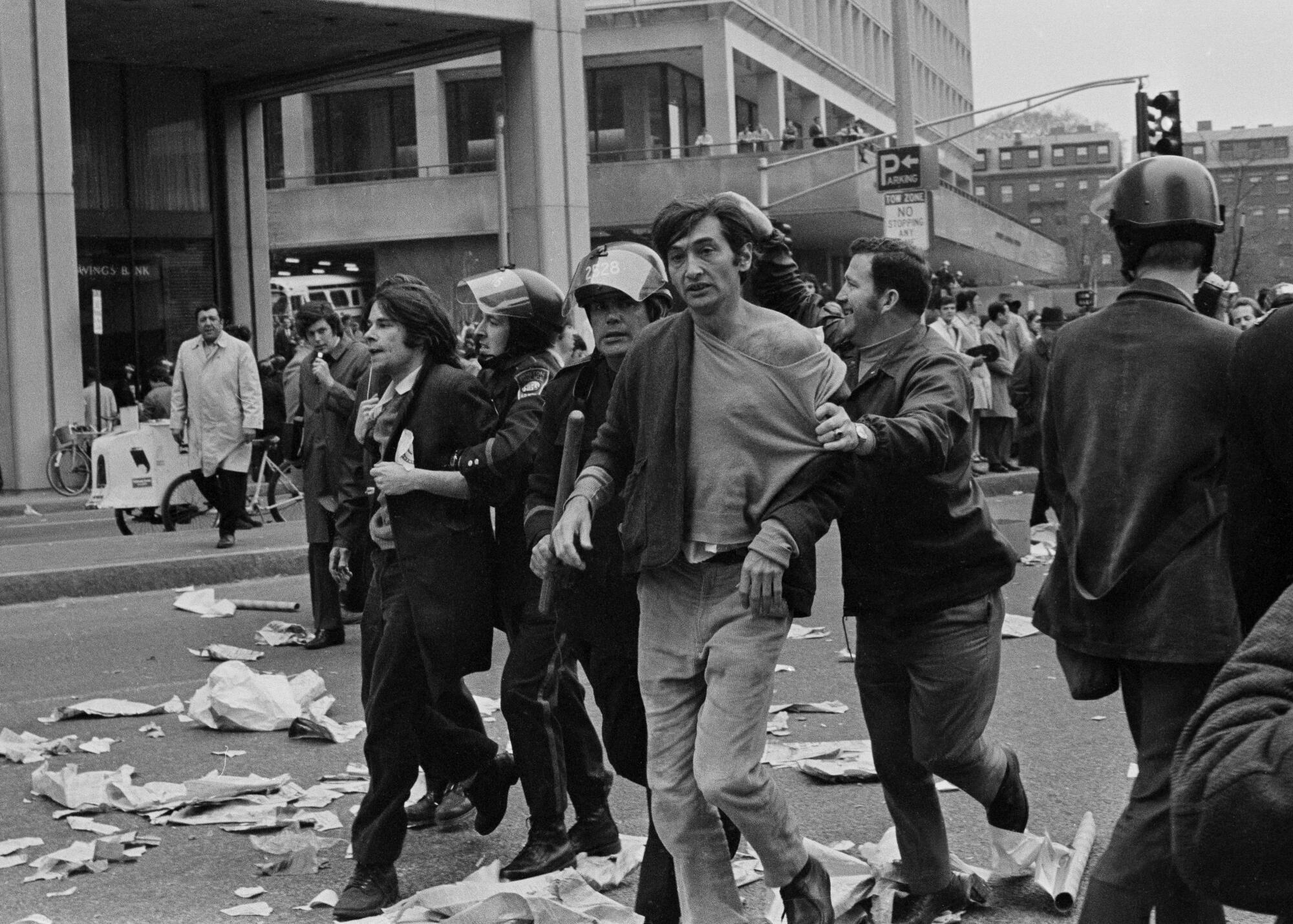
At sentencing Pregerson gave no inkling of his motivation, but said simply that Zaugh “does not now need confinement.” He sentenced him to two years of probation on the condition that he “perform civilian work of national importance contributing to the maintenance of the national health, safety and interest.”
U.S. District Judge Dean Pregerson, who followed his father to the bench, believes the reasons for his decision were complex.
“I think like so much of the country, my dad had nothing but respect for men and women in uniform, but at the same time he began having doubts about whether this war made sense,” he said.
But he also thought Zaugh’s sincerity had influenced the decision.
“The other thing that is a reflection of my dad’s character is that he appreciated people who were genuine, who lacked guile and were acting on principle,” the son said. “The fact that people like Bob were willing to go to prison rather than do what less principled people would do, which is try to avoid the draft through some other means, is something that spoke to those qualities.”
Zaugh informed the Probation Board that he intended to serve the national interest by continuing to work for the Peace Press.
That could have been a tidy end to the story, but fate was still at play.
Three decades later, the elder Pregerson came back into Zaugh’s life by chance. It happened, of all places, at a UCLA football game where Zaugh, by then a Bruin fan, saw UCLA alum Pregerson honored at halftime.
Zaugh’s sense of destiny was reinforced when he attended a screening of Oscar-winner Terry Sanders’ 1998 documentary “Return with Honor,” about U.S. pilots who’d been prisoners of war. It was a fundraiser for an Inglewood veterans shelter, one of several Pregerson had helped found.
“So, after intending to write you since the 70’s, the signs were clear it was time to do so,” Zaugh said in an undated letter to Pregerson, by then on the U.S. 9th Circuit Court of Appeals.
He reminded the judge of the details of his case and concluded:
“What was crucial for me was that though you probably disagreed with my position, you probably set that aside and allowed me to present my defense.”
He mentioned that he had done his work in the national interest at the Peace Press.
“Though it may seem a stretch as work in the national interest, it was respected by many and studied as a model worker-owned business by the [Small Business Administration] and California.
“My conviction has never been a burden in any way and the fact that you chose not to jail me has probably been a blessing.”
By then Pregerson, who famously testified at his 1979 appeals court confirmation hearing that he would follow his conscience if it conflicted with the law, had established himself as an activist, both on and off the bench, on behalf of homeless people and veterans. He stirred the federal bureaucracy to provide land for the Salvation Army’s shelter in Bell, and his oversight of litigation over the Century Freeway led to the construction of close to 1,000 permanent housing units for veterans at Century Villages at Cabrillo.
On Feb. 16, 1999, Pregerson wrote back:
“It meant a lot to receive your letter. ... I remember your case well. I also remember Mike Swartz and another young man whose last name was Whitten. I’ve often wondered what became of you and the others.
“I am happy to know that my disposition of your case turned out so well for you and for our country.”
Zaugh had long wanted to thank Pregerson in person, but couldn’t get court staff to make an appointment. He finally succeeded in 2016, when he offered to introduce the judge to his friend Gary Tyler. A Black man who had served 40 years in a Louisiana prison on a murder charge that was widely discredited as racially motivated, Tyler was released that year in a manslaughter plea deal. Zaugh had supported the campaign to free him and facilitated Tyler’s move to Los Angeles.
The 2½-hour meeting in the judge’s chambers provided a link that bore fruit upon Pregerson’s death on Nov. 25, 2017.
Sanders, the filmmaker, wanted to film the judge’s memorial service at the Shrine Auditorium. Zaugh made the introduction to the family through Pregerson’s staff. That footage became the foundation for “9th Circuit Cowboy,” Sanders’ feature-length documentary on the judge.
Zaugh, Sanders and Dean Pregerson have since appeared at colleges and high schools for showings and discussions of the film.
Today Zaugh, 79, a divorced father of three, lives alone in a guesthouse in south Santa Monica. He spent about two decades at the Peace Press, then another 20 years printing for Matt Groening’s Bongo Comics Group. He used his severance from the company to form a nonprofit, Actions Speak Louder Inc.
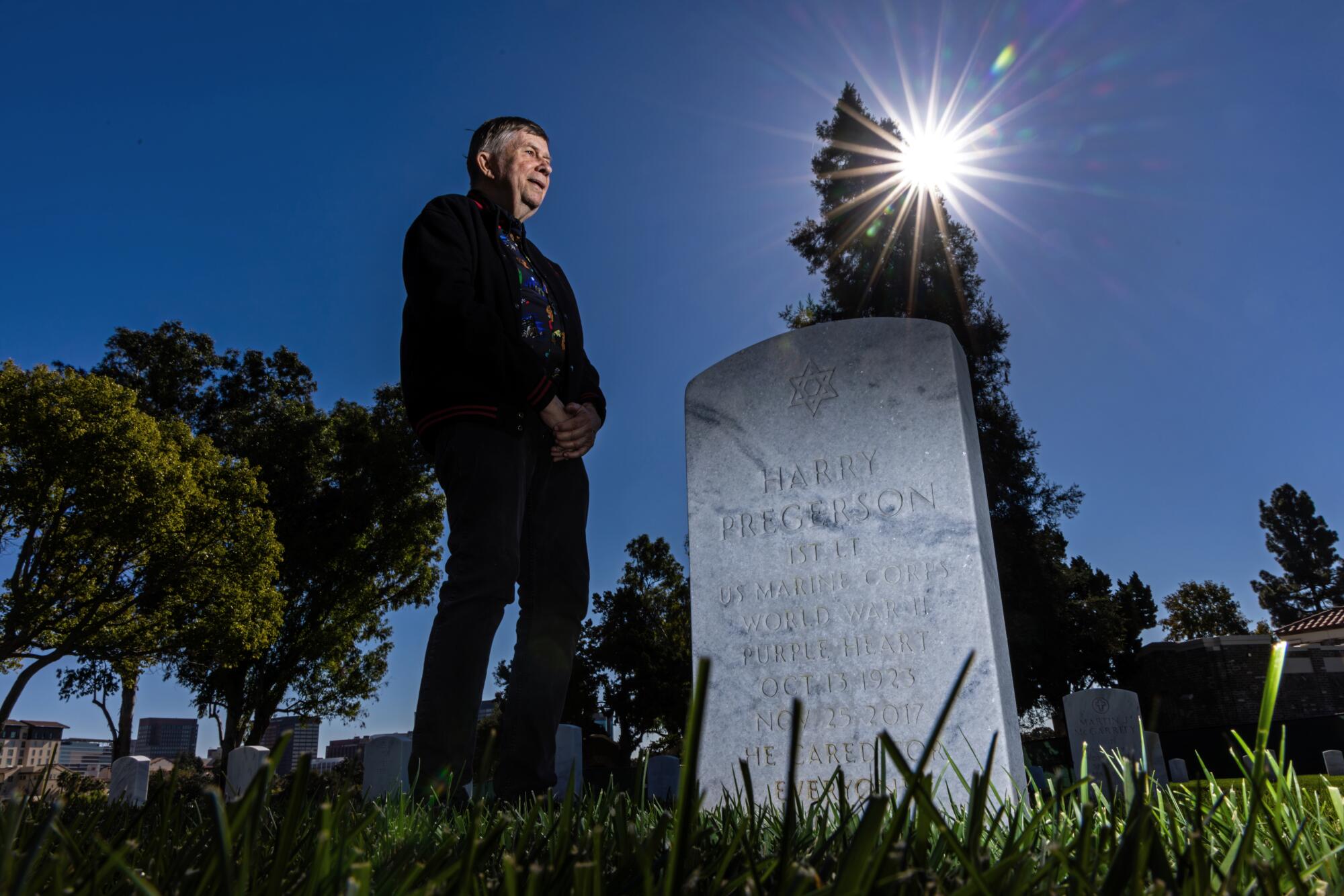
His nonprofit produces dramatic readings of the play “Our Town” and speaks with law school students at UCLA and Loyola Marymount about the Resistance. Its history is as relevant as ever today, he thinks, as he sees protesters for the Palestinian cause hiding their identities and shunning the news media instead of openly proclaiming their commitment to the cause.
His current project is preparing a yearlong exhibition of talks and artwork on depression for El Camino College in Torrance.
He also prays out loud every day for some 200 people, living and dead.
“I ask that I am able to represent, carry forth, the best trait of their life in my own life to honor their soul.”
After Pregerson’s death, Zaugh began a ritual that is partly spiritual and partly his continued service to the national interest. On Veterans Day and Memorial Day, he visits L.A.’s National Cemetery for veterans.
It’s a simple observance. He walks to Pregerson’s grave site, sits with him and prays.
His message: “Thank you.”
More to Read
Sign up for Essential California
The most important California stories and recommendations in your inbox every morning.
You may occasionally receive promotional content from the Los Angeles Times.






